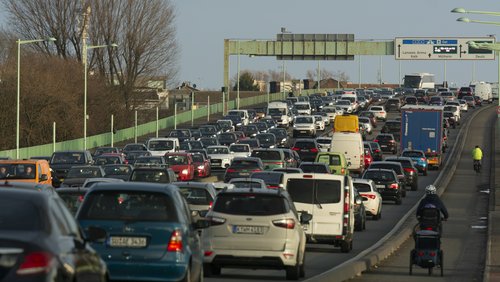For a successful transformation of economies and energy systems according to climate policy objectives, many qualified specialists and skilled workers are needed.
Linking Taxonomy-Eligibility and Employment Survey Data: Job Profiles in the Renewable Energy Sector in Germany
in: Larsen, Christa / Kipper, Jenny / Porep, Daniel / Walter, Anja / Kapme, Carsten / Höhne, Markus /Lukas Kleine-Rueschkamp, Pathways of Greening Labour Markets

For a successful transformation of economies and energy systems according to climate policy objectives, many qualified specialists and skilled workers are needed.
To achieve climate neutrality by 2045, as set under the German climate law, the expansion of renewable energies and the shift towards climate-neutral technologies in sectors such as industry, transport and buildings must accelerate dramatically over the coming years. Targeted education and training in relevant sectors are crucial elements to prevent future personnel bottlenecks in the context of a shrinking workforce.
In this study, we propose a novel approach to analyse the jobs- and skills-profiles of German employees in the renewable energy segment, using a two-step identification procedure based on a macro-level sectoral identification and micro-level survey responses. First, we identify relevant economic sectors for the expansion of renewable energies based on the list of ecologically sustainable economic activities from the EU Taxonomy ‘Climate-Act’. Second, we screen the responses from the 2018 employment survey from the Federal Institute for Vocational Education and Training (BIBB) and the Federal Institute for Occupational Safety and Health (BAuA) in Germany for job information indicating a clear link to renewable energies.
For the jobs- and skills-profiles identified, our results show a high concentration of renewable energy employees in production-oriented jobs (i), a large degree of technical knowledge and competencies required (ii), a dynamic and changing working environment through the introduction of new machinery or products (iii), and a disproportionate engagement in training and reskilling programmes (iv). The results suggest that renewable energy workers share a large overlap with occupations promoted under the German dual training system, while their work environment is shaped by an above-average level of change and skills requirements.
Linking Taxonomy-Eligibility and Employment Survey Data: Job Profiles in the Renewable Energy Sector in Germany
in: Larsen, Christa / Kipper, Jenny / Porep, Daniel / Walter, Anja / Kapme, Carsten / Höhne, Markus /Lukas Kleine-Rueschkamp, Pathways of Greening Labour Markets


Klimapolitik: „Man müsste ein Paket schnüren, mit dem man noch mal neu anfängt“
Im Handelsblatt-Podcast „Economic Challenges“ diskutiert IW-Direktor Michael Hüther die Herausforderungen der ökologischen Transformation und fordert realistischere finanzielle Strategien. Er schlägt vor, den Zertifikate-Handel zu europäisieren und einen ...
IW
Energiewende: Wie steht es um die Versorgungssicherheit in Deutschland?
In einem Sonderbericht kommt der Bundesrechnungshof zu dem Ergebnis, dass der Ausbau der erneuerbaren Energien zu langsam vorankommt, die Energiewende nicht auf Kurs sei und damit sei auch die sichere Versorgung mit Strom in Deutschland gefährdet. Darüber ...
IW